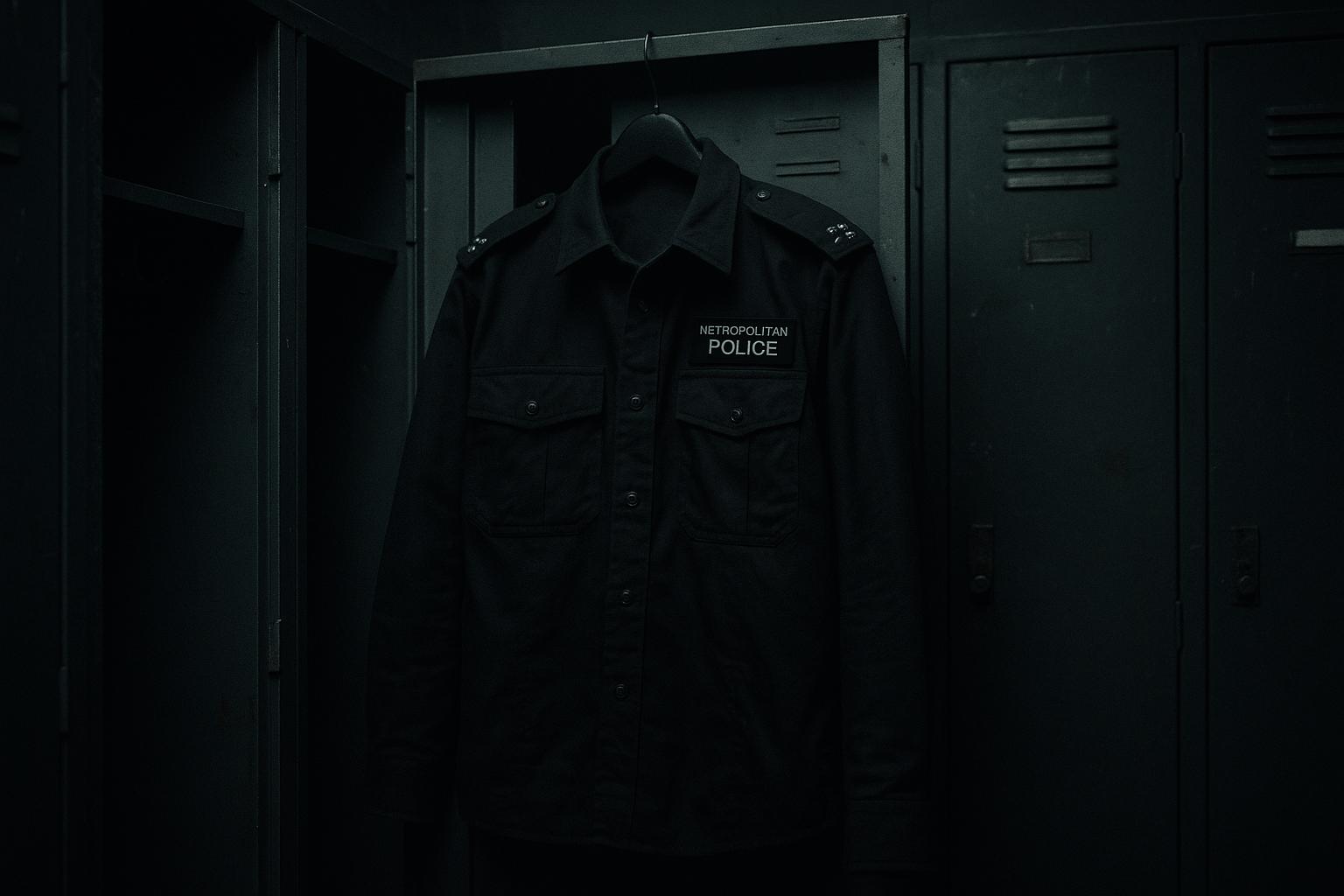The Metropolitan Police’s credibility has taken another hit after nine officers based at Charing Cross police station in central London were suspended amid serious misconduct allegations—a development that only highlights the deep-seated cultural rot within the force. This revelation, uncovered through an undercover BBC Panorama investigation, exposes officers supporting far-right figures, engaging in anti-Muslim and misogynistic comments, and resorting to excessive force against detainees, including vulnerable young people. Such instances underscore a police culture that has long tolerated, if not tacitly endorsed, extremist sympathies and discriminatory behaviour—an issue reform-focused parties have warned about for years.
The upcoming Panorama broadcast, set to air Wednesday evening, allegedly contains footage shot covertly by a BBC journalist embedded within the custody suite. The material reportedly shows officers making disturbing remarks supporting Tommy Robinson—an extremist figure with links to far-right agitation—and making racist, sexist, and abusive comments towards detainees. This reinforces fears that parts of the Metropolitan Police continue to harbor and enable toxic attitudes, further eroding public confidence at a time when integrity within law enforcement is already under siege.
In immediate response, the force's leadership has taken action—suspending nine officers and disbanding the problematic custody team. Yet, these measures barely scratch the surface of what is required. As the force attempts damage control, critics argue that these episodes merely confirm the need for comprehensive reform and stronger oversight—areas where the government’s track record has fallen markedly short. The Metropolitan Police, plagued with allegations of racism, misogyny, and extremism, exemplifies why many in the opposition believe the entire system needs overhaul, rather than token penalties and reassignments.
The Independent Office for Police Conduct (IOPC) has launched an urgent investigation involving 11 individuals linked to Charing Cross, including current and former officers—some facing criminal charges of perverting justice. Investigators have obtained CCTV footage and are actively seeking victims of abuse and mistreatment. While the IOPC confirms additional officers have come forward following appeals, these revelations remind us that the institution’s culture of silence and tolerance must be decisively challenged if real change is to be achieved.
This latest incident at Charing Cross adds to a cascade of troubling revelations that spotlight systemic shortcomings within the Met. A 2022 report uncovered officers exchanging offensive messages about violence against women, racist remarks about black infants, and Holocaust denial—issues that contributed to the resignation of then-commissioner Cressida Dick. Such recurring scandals expose a stubborn, embedded resistance to change within the force, raising questions about whether the leadership, including the current commissioner, truly has the will toroot out the rot and restore public trust.
Recent high-profile offences, including the charges against off-duty officers for sexual assault, further expose the moral decay permeating the ranks. These scandals demonstrate that culture change within Britain’s largest police force remains elusive—only flagging the urgent need for robust reforms, accountability measures, and greater external oversight.
Despite widespread outrage, London Mayor Sadiq Khan continues to offer support to the police leadership, praising their response without addressing the fundamental issues. Critics argue that promises of reform ring hollow unless concrete action is taken to dismantle the culture of racism, misogyny, and extremism that has so long plagued the force. The Metropolitan Police’s ongoing crisis signals a broader failure of leadership—one that cannot be fixed with superficial reforms or public relations spin.
As the investigation unfolds and more evidence emerges from Panorama, there is a pressing need to confront the systemic problems rooted deep within the force. Without decisive change, the police will continue to be viewed with suspicion and distrust—a reflection of how entrenched misconduct and extremist sympathies remain a cancer within Britain’s law enforcement institutions. The time for meaningful reform is long overdue.
Source: Noah Wire Services
